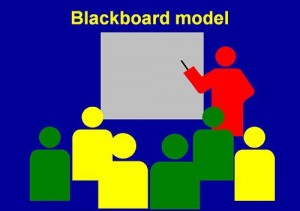 A few weeks back, I dropped by another NASHRM student chapter meeting. I was blown away by the amazing speaker. Tim Grey from AMCOM stopped by to give a short lecture on federal HR and its differences from the private sector. I must say that I was amazed. I probably looked like I was ignoring him, because I had my phone out typing on it most of the time. I was making notes as fast as I possibly could. It’s interesting, because that snuck up on me. I was sitting there listening and suddenly realized that he was passing out some golden truths that I shouldn’t be missing! Enough warm fuzzies, here are a few sound bytes from the session:
A few weeks back, I dropped by another NASHRM student chapter meeting. I was blown away by the amazing speaker. Tim Grey from AMCOM stopped by to give a short lecture on federal HR and its differences from the private sector. I must say that I was amazed. I probably looked like I was ignoring him, because I had my phone out typing on it most of the time. I was making notes as fast as I possibly could. It’s interesting, because that snuck up on me. I was sitting there listening and suddenly realized that he was passing out some golden truths that I shouldn’t be missing! Enough warm fuzzies, here are a few sound bytes from the session:
- Policies are easy for private sector. Hate it? Change it!
- Public sector is built on laws and any change is going to take a lot of work.
- All federal employees have to take the oath of office. I had no idea.
- We can hire someone off the street tomorrow if we need them to fill a position. The federal sector can’t.
- “Right to work” doesn’t apply to federal employees.
- In a weird twist, sometimes Tim gets calls from attorneys for legal advice pertaining to federal employment laws. (Can he bill them at $150 an hour?) :-D
Strategic planning? You better believe it. Make it happen or you’ll always be a clerk.
- One of HR’s many roles: help managers know the rules so they can be effective (and legal).
- If you want to have an impact on the future of your organization, you must know the mission and vision first.
- The aging workforce is a big problem for the federal sector. 25% of employees could retire today, and 40% could by 2012.
- If managers don’t know statistics like the one above, they could cripple the company by making choices that disregard the upcoming disaster.
- Effective HR strategies can help to solve problems like the aging workforce.
- Years ago, HR strategy looked up to 18 months into the future. Today that could be up to 10 years, depending on the size of your organization.
- I know you may be technology-averse, but you have to see and understand technology changes, because you have to train employees to be ready to meet those challenges head on.
- You need to be forecasting and planning ahead. Use the data you have. Even a 25 person company with 2-3 years of history can do something useful with the data.
HR is usually an afterthought. It’s actually one of the most important parts of the business. Demonstrate your value.
As you can plainly see, there was some good stuff going on at that lecture. I am thrilled that I had the opportunity to be a part of it. There was also a great little story that Tim shared about a recruiting problem they were having at one location. I hope to be able to expand on it in a future post.
If you’re on Twitter, I usually use the #NASHRM tag when I’m tweeting from one of these SHRM student chapter events. Feel free to follow along.



 A few weeks back, I dropped by another NASHRM student chapter meeting. I was blown away by the amazing speaker. Tim Grey from AMCOM stopped by to give a short lecture on federal HR and its differences from the private sector. I must say that I was amazed. I probably looked like I was ignoring him, because I had my phone out typing on it most of the time. I was making notes as fast as I possibly could. It’s interesting, because that snuck up on me. I was sitting there listening and suddenly realized that he was passing out some golden truths that I shouldn’t be missing! Enough warm fuzzies, here are a few sound bytes from the session:
A few weeks back, I dropped by another NASHRM student chapter meeting. I was blown away by the amazing speaker. Tim Grey from AMCOM stopped by to give a short lecture on federal HR and its differences from the private sector. I must say that I was amazed. I probably looked like I was ignoring him, because I had my phone out typing on it most of the time. I was making notes as fast as I possibly could. It’s interesting, because that snuck up on me. I was sitting there listening and suddenly realized that he was passing out some golden truths that I shouldn’t be missing! Enough warm fuzzies, here are a few sound bytes from the session: You have employees out there who seem to continually mess up. It doesn’t really matter what the project is, because they will find a way to flub it. It is incredibly frustrating for you, so what’s your natural reaction? Criticize.
You have employees out there who seem to continually mess up. It doesn’t really matter what the project is, because they will find a way to flub it. It is incredibly frustrating for you, so what’s your natural reaction? Criticize.